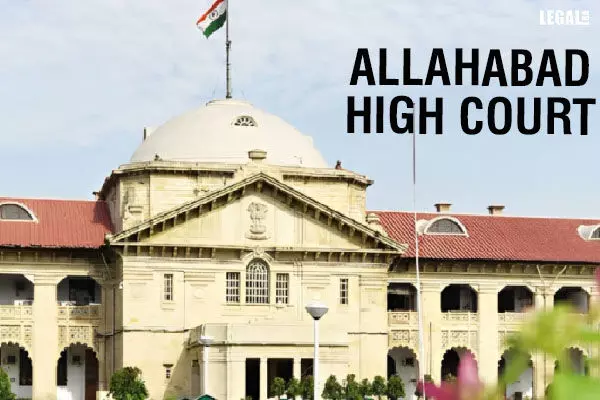- Home
- News
- Articles+
- Aerospace
- AI
- Agriculture
- Alternate Dispute Resolution
- Arbitration & Mediation
- Banking and Finance
- Bankruptcy
- Book Review
- Bribery & Corruption
- Commercial Litigation
- Competition Law
- Conference Reports
- Consumer Products
- Contract
- Corporate Governance
- Corporate Law
- Covid-19
- Cryptocurrency
- Cybersecurity
- Data Protection
- Defence
- Digital Economy
- E-commerce
- Employment Law
- Energy and Natural Resources
- Entertainment and Sports Law
- Environmental Law
- ESG
- FDI
- Food and Beverage
- Gaming
- Health Care
- IBC Diaries
- In Focus
- Inclusion & Diversity
- Insurance Law
- Intellectual Property
- International Law
- IP & Tech Era
- Know the Law
- Labour Laws
- Law & Policy and Regulation
- Litigation
- Litigation Funding
- Manufacturing
- Mergers & Acquisitions
- NFTs
- Privacy
- Private Equity
- Project Finance
- Real Estate
- Risk and Compliance
- Student Corner
- Take On Board
- Tax
- Technology Media and Telecom
- Tributes
- Viewpoint
- Zoom In
- Law Firms
- In-House
- Rankings
- E-Magazine
- Legal Era TV
- Events
- News
- Articles
- Aerospace
- AI
- Agriculture
- Alternate Dispute Resolution
- Arbitration & Mediation
- Banking and Finance
- Bankruptcy
- Book Review
- Bribery & Corruption
- Commercial Litigation
- Competition Law
- Conference Reports
- Consumer Products
- Contract
- Corporate Governance
- Corporate Law
- Covid-19
- Cryptocurrency
- Cybersecurity
- Data Protection
- Defence
- Digital Economy
- E-commerce
- Employment Law
- Energy and Natural Resources
- Entertainment and Sports Law
- Environmental Law
- ESG
- FDI
- Food and Beverage
- Gaming
- Health Care
- IBC Diaries
- In Focus
- Inclusion & Diversity
- Insurance Law
- Intellectual Property
- International Law
- IP & Tech Era
- Know the Law
- Labour Laws
- Law & Policy and Regulation
- Litigation
- Litigation Funding
- Manufacturing
- Mergers & Acquisitions
- NFTs
- Privacy
- Private Equity
- Project Finance
- Real Estate
- Risk and Compliance
- Student Corner
- Take On Board
- Tax
- Technology Media and Telecom
- Tributes
- Viewpoint
- Zoom In
- Law Firms
- In-House
- Rankings
- E-Magazine
- Legal Era TV
- Events
Allahabad High Court: Moratorium Under Section 14 Of IBC Shields Corporate Debtor And Not Directors From Proceedings Under Sections 138/141 NI Act

Allahabad High Court: Moratorium Under Section 14 Of IBC Shields Corporate Debtor And Not Directors From Proceedings Under Sections 138/141 NI Act
The Allahabad High Court has held that the moratorium provisions outlined in Section 14 of the Insolvency and Bankruptcy Code, 2016, specifically bar proceedings under Section 138/141 of the Negotiable Instruments Act solely against the corporate debtor, without extending to natural persons such as the company directors for their vicarious liability.
Justice Arun Kumar Singh Deshwal made the observation while rejecting a petition filed by Gurmeher Singh, contesting the proceedings of a complaint case under Section 138 of the Negotiable Instruments Act pending before the Additional Civil Judge (Judicial Division), Gorakhpur.
Section 14 of the Insolvency and Bankruptcy Code (IBC) defines moratorium as a designated period wherein legal actions, including debt recovery, enforcement of security interests, asset selling or transferring, or termination of vital contracts, cannot be initiated or enforced against the corporate debtor. This provision aims to safeguard the assets of the corporate debtor throughout the resolution process.
Opposite party No. 2 filed an application under Section 138 of the Negotiable Instruments Act against the applicant and his company, M/s Saraya Industries Ltd. Upon reviewing the complaint and other evidence on record, the learned trial court issued a summons to the applicant, who is an active director of the company.
The applicant challenged that order through a revision, but the revision was also dismissed. Consequently, feeling aggrieved by both rulings, the applicant has filed the current application.
The applicant submitted that they are the directors of the company for which the disputed cheque was issued. As insolvency proceedings are underway against the company under the IBC, Section 14 of the IBC prohibits any proceedings, including those under Section 138 of the Negotiable Instruments Act, from being pursued against the company. The applicant asserts that they have not provided any guarantee for the amount payable under the cheque in question.
The learned A.G.A. argued that Section 14 of the IBC prohibits execution only against the company and not against natural persons; hence, a director of the company will have no protection in a complaint under Section 138 of the of the NI Act.
The court, upon considering the submissions made by learned counsel for the parties and examining the records, found that the applicant, in their capacity as director of the company, actively participated in the day-to-day business operations and also persuaded the opposing party to invest money in the company's liquor business. Regarding Section 14 of the IBC, the court noted that this section prohibits proceedings against the corporate debtor but not against natural persons such as directors.
Upon reviewing the complaint and the statement of the opposing party, the court found clear allegations against the applicant, indicating their involvement in the company's daily operations. Consequently, the court held that the applicant is also liable under Section 141 of the Negotiable Instruments Act.


